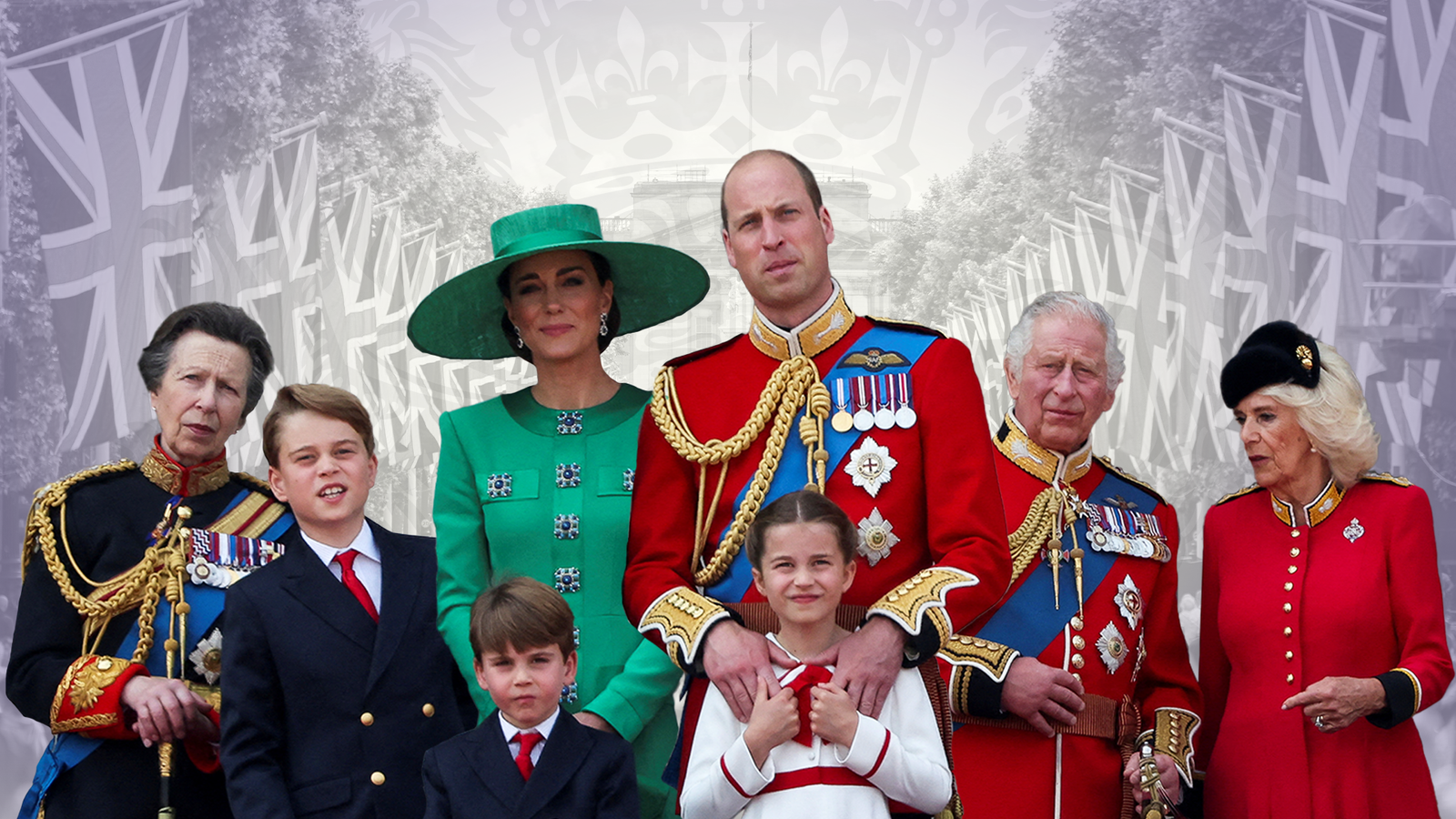Things had been going well for the British monarchy since the death of the venerated Queen Elizabeth II in September 2022 and the subsequent coronation of her son Charles III last May.
Charles earned praise for the warmth with which he took to the throne. He approached the job with a more human face than his mother.
Nobody ever touched the Queen but Charles has been open to handshakes and even kisses from the public. Robert Hardman’s authoritative book on the transition, Charles III: New King. New Court, duly featured on bestseller lists.
A widely anticipated drop in popularity for the Royal Family after Elizabeth did not occur.
In the UK, support for the monarch stayed comfortably in the 60% range. When pollsters ask the question a different way, constitutional monarchy remains the favourite option for government, with just short of 50% backing.
In the past few days, the smooth and happy transition between reigns has been upset by a rush of bad news for the Royal Family of the type which could hit any family.
The royals share common humanity and human frailty with their subjects. Their personal trials, however, have unique implications because they are public figures and generally accepted as national leaders from birth.
Queen Camilla to step in for King Charles at annual Royal Maundy Service as monarch to miss event
Why has there been speculation about the Princess of Wales’s health?
Prince William to carry out engagements this week as he continues to refuse to comment on speculation about Kate’s health
Absent from the memorial service for King Constantine of Greece on Tuesday at St George’s Chapel, Windsor Castle, were the King, the Prince of Wales, the Princess of Wales, and Lady Gabriella Kingston, who, like William, was a godchild of Constantine.
Please use Chrome browser for a more accessible video player
The service was both an intimate family event for those of royal blood and a high-profile public function. Media outlets produced diagrams of who was present.
They noted the prominence of the disgraced Prince Andrew and his ex-wife Sarah, Duchess of York, and highlighted the considerable ages of the “working royals” present. Queen Camilla, 76; Princess Royal 73; Duke of Kent 88; Duke of Gloucester 79.
Richard Kay, the Daily Mail’s assiduous royal watcher, commented that “gazing at the remnants of our first family on display at Windsor this week it was impossible to escape the conclusion that it has suddenly become a threadbare institution”. He went on to argue that the stability of the Royal Family “looks to be in jeopardy”.
“Never in modern memory have the royals had so many multiple troubles at the same time,” he said.
Read more:
Queen Camilla to step in for King Charles at annual Royal Maundy Service
Why has William been dragged into speculation over Kate’s health?
William to carry out engagements as he continues refusal to comment on Kate’s health
Many monarchists would regard hyperbolic commentary from journalists as one of their biggest problems. The sorry and sad state of the family in the chapel still highlights key challenges it faces as it attempts to consolidate the nation behind another monarch.
There were good reasons for the non-appearance of the leading members of the family.
King Charles is being treated after an unspecified cancer diagnosis. Catherine is recuperating from unspecified major abdominal surgery. William pulled out at short notice because of a “personal matter”, perhaps connected to his wife’s illness.
Lady Gabriella is currently 56th in line to the throne. Her husband Tom Kingston, 45, was found dead at his parents’ home last weekend. Emergency services have confirmed “no suspicious circumstances and no-one else involved”. There will be an inquest.
In spite of Gabriella’s loss, her parents, Prince and Princess Michael of Kent, 81 and 79 respectively, attended the service at Windsor. Looking at her 72 years of service, it is safe to assume that the late Queen would have done the same.
Only absolute incapacity would have prevented Elizabeth II from fulfilling what she regarded as her duty. She was a 96-year-old woman who stood to receive two rackety prime ministers, Boris Johnson and Liz Truss, days before her death.
Please use Chrome browser for a more accessible video player
Cheerfully putting his get-well-soon cards on display, Charles showed the significant public sympathy for him. He has shared details of his prostate treatment with the public, if not his cancer.
There is similar concern for Catherine. Neither of them may be able to return to royal work with their former vigour and enthusiasm. If so, they would be well advised to be more open about their health problems. Public expectations of them are so high.
At present the leading royals are uncomfortably half-in and half-out in what they are prepared to tell the public. They recognise the need for greater informality. Not least because support for the monarchy is at its lowest among the young.
The staunchest royalists are older, female and Conservative-inclined voters. Yet in large part because of their trauma over the loss of their mother, William and Harry “hate the press”, according to their friends, and guard the privacy of their family jealously, in their own ways.
Understandably George, next in line to the throne, and his siblings, Charlotte and Louis are being brought up in a cocoon of privacy like that enjoyed by William and Harry as boys, rather than the performative service expected of the young Charles when he was Prince of Wales.
Being royal carries great privileges in exchange for unique demands. Under the Sovereign Grant Act 2011 they receive a minimum of £86m a year from the Treasury, balanced against earnings from the Crown Estates, which are owned by the nation.
There is also private annual income of some £20m each from the Duchy of Lancaster and the Duchy of Cornwall. Following the “annus horribilis”, the Queen volunteered to pay capital gains tax and income tax on some private wealth. There is no inheritance tax on any of the royal palaces or estates.
In exchange, around a dozen “working royals” have been carrying out over 3,000 official engagements a year. The monarch has additional constitutional duties overseeing the government, the Church of England, the honours system and charities.
The British monarch is also head of state of 14 “realms” including Australia, Canada and New Zealand. William and Kate undertook a controversial tour of the Caribbean in 2022, which seems to have encouraged Jamaica, Belize and Antigua & Barbuda to become republics.
King Charles and his heir William have both been keen to thin down the Royal Family and their public engagements, without any indication so far that they intend to reduce their wealth.
Their depleting ranks show the working Royal Family is actually in need of extra recruits if it is to maintain its presence in national life at the expected level.
Camilla won’t be able to keep up her frenetic chief substitute schedule forever. Palace sources insist there will be no return to full HRH status for Andrew and Fergie.
If Charles and William were to be incapacitated at the same time, Harry would become regent, so long as George is a minor. Before he lost his court bid for official security protection, Prince Harry indicated he would like to help out with royal duties.
But he has disclosed numerous revelations and grievances since he distanced himself from the Royal Family following his marriage and is unlikely to be trusted and let back in by either his father or his brother.
Harry also faces fresh headline-making problems in his adopted home. Some of Donald Trump’s closest advisers are encouraging him to look into the visa status in the US of the King’s son, given his admission of drug-taking in his autobiography Spare.
Sensing an advantage which could at the least stop Harry and Meghan endorsing his opponent, Trump told last week’s Conservative Political Action Conference near Washington DC: “I wouldn’t protect him. He betrayed the Queen. That’s unforgivable. He would be on his own if it was down to me.”
The UK is a small ‘c’ conservative country, which has taken more than a century not to sort out the unelected House of Lords and the established church. Active moves to replace the monarchy seem unlikely.
Be the first to get Breaking News
Install the Sky News app for free
The danger is that it could fall into disrespect and public indifference if its privileges do not seem sufficiently balanced by public service. A Scandinavian-style “bicycling monarchy” is not an option in a country the size of the UK for so powerful and wealthy a family.
In an academic report on the British monarchy, published at the time of Charles’ coronation, the doyen of political commentators Professor Sir John Curtice concluded: “The monarchy may look secure for now, but the foundations of its public support need some reinforcement.” There has been erosion since then.
In that same study, published by Britain in a Changing Europe and University College London’s Constitution Unit, another contributor went further. What if the Royal Family just gave up?
“What if Prince George thinks that his Uncle Harry is right, that the loss of freedom is too high a price, and that he too would like to flee the ‘gilded cage’? What then?”






















